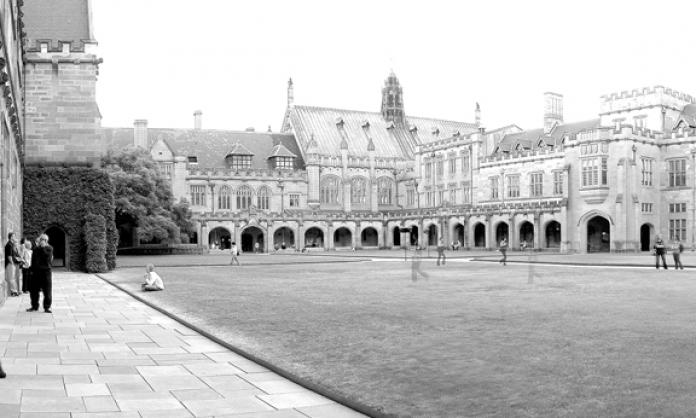The email came through at 3:40pm on Friday, 5 October: all 53 of us employed at the University of Sydney’s fundraising call centre had just lost our jobs. The “regrettable” closure of the centre, the message told us, was to occur the following day, meaning we had less than 18 hours until our final shift and no time at all to find an alternate source of income.
The fundraising call centre is a huge revenue raiser for the university. Through aggressive and mandated selling techniques, student callers had clocked up donations worth almost $300,000 this year alone.
The sackings came just weeks after tens of thousands of dollars were raised as part of the annual fundraising campaign, Pave the Way.
On the phones we were expected to promote the “University of Sydney philosophy” of “giving back” to the community in order to convince alumni, parents and others to donate. Good though it was for public relations and to channel private money into the university, this “spirit of giving” clearly does not extend to call centre workers.
We were told in a meeting before our last shift that we should accept the sackings because we are casuals and therefore have no rights. Perhaps in order to reinforce this point, we were later told by management that the time spent in the meeting would not be paid.
University management was able to get away with this because of our particular employment arrangements. Rather than being hired by the university directly, we are on the books of a US company, Ruffalo Noel Levitz. RNL specialises in soliciting funds from individual private donors, and it pays its workers an hourly wage $10-15 lower than the union-won minimum at the Sydney University campus.
The flexibility that is a purported benefit of such work all goes one way. While the bosses have the flexibility to sack us at will, RNL workers are required to adhere to onerous rules, including having to give notification well in advance of holidays, having to find replacement workers for refused shifts and working a mandatory six shifts per month.
On news of the sackings, workers immediately got together to plan a challenge to the decision. We raised an outcry about what was going on, talking to the student newspaper and organising collectively before meetings with management.
We vocally challenged the RNL bosses to justify what they had done. Their response was to repeat continually that the sackings were necessary for “operational reasons”.
We demanded that the university end its practice of outsourcing to third party operators that put workers on shoddy casual contracts. This practice undermines the conditions and wages of university workers by undercutting hard-won standards.
By kicking up a fuss, we were able to win some concessions. Management offered us 10 more shifts, effectively two weeks’ notice, and, unusually for casuals, severance pay worth a week’s average wage for each “active” employee.
The union covering our call centre, the National Union of Workers, was able to argue that RNL had breached the award by not consulting with the workers, which helped wrench concessions from the management.
A further demand we will continue to fight for is to be reinstated as in-house employees of the university.










